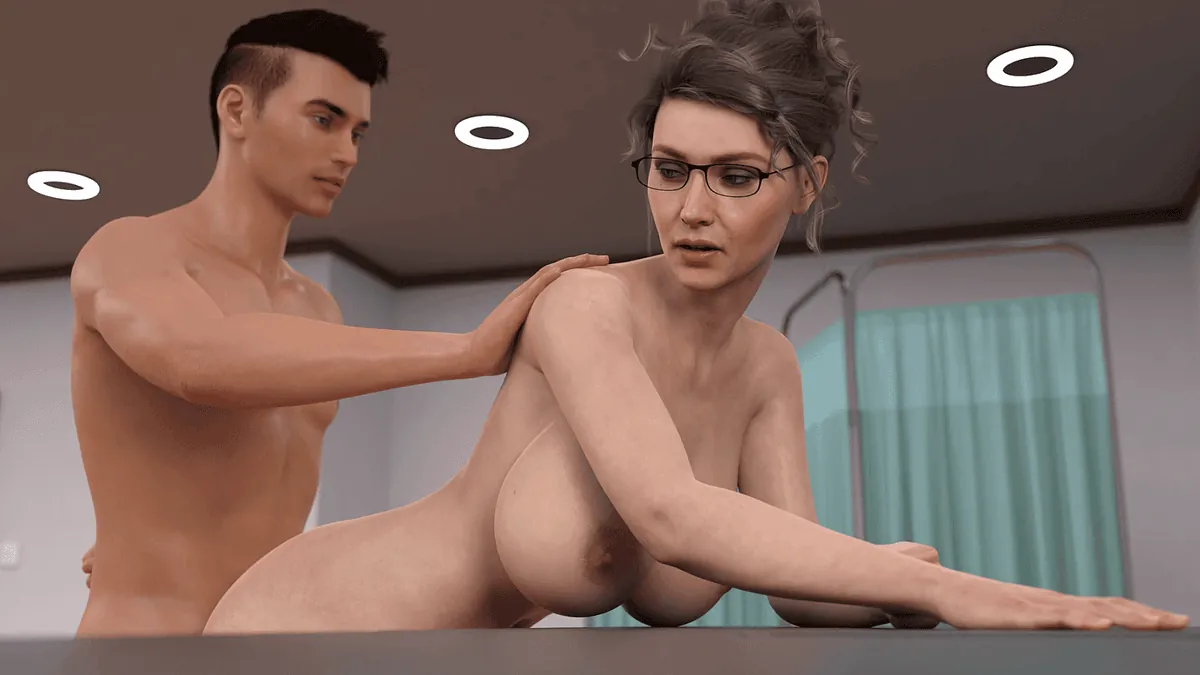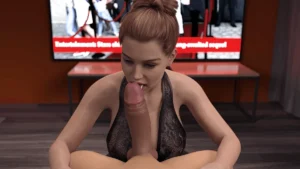
Play Adverse Effects
Adverse Effects review
A Deep Dive into the Consequences and Player Experiences of the ‘Adverse Effects’ Game
The ‘Adverse Effects’ game has gained attention for its provocative content and immersive gameplay. However, many players and observers are curious about the potential consequences and challenges that come with engaging in this game. This article explores the various adverse effects linked specifically to the ‘Adverse Effects’ game, drawing from player anecdotes and expert insights to provide a comprehensive understanding. Whether you’re a player or simply interested in the game’s impact, this guide offers practical advice and personal perspectives to navigate its complexities.
What Are the Key Adverse Effects of Playing ‘Adverse Effects’?
Let’s be honest – when we first booted up ‘Adverse Effects,’ most of us were just looking for a compelling story and some engaging gameplay. We didn’t sign up for the lingering emotional hangover or the way the game’s themes would subtly reshape our thoughts and behaviors. Yet, that’s precisely the power of this immersive experience. Understanding the adverse effects of the Adverse Effects game is crucial, not to scare players away, but to foster a healthier, more conscious relationship with it. This deep dive into the player experiences Adverse Effects game reveals isn’t about condemnation; it’s about awareness and empowerment. 😟
Emotional and Psychological Impact on Players
The most immediate and often intense consequences of playing ‘Adverse Effects’ are the ones we feel internally. The game is masterfully designed to provoke a strong emotional impact gaming can deliver, but this doesn’t always switch off when you exit the game. Many players report carrying the game’s heavy atmosphere with them long after their session ends.
I remember talking to a friend, Mark, who is typically the most level-headed person I know. After a multi-hour dive into a particularly tense story arc in ‘Adverse Effects,’ he told me he felt a pervasive sense of anxiety for days. “It wasn’t just remembering the game,” he said. “It was like my brain had absorbed the world’s constant state of crisis. I’d feel my heart rate spike over minor, real-life inconveniences, as if they were in-game threats.” This is a classic example of the psychological impact Adverse Effects game content can have, blurring the lines between the game’s high-stakes drama and our everyday reality.
Common emotional and psychological responses include:
- Mood Fluctuations: Players can experience irritability, sadness, or a general sense of unease, often without immediately connecting it back to their gameplay session. 😔
- Increased Anxiety: The game’s constant tension and morally complex decisions can leave your nervous system in a heightened state, mimicking feelings of real-world stress.
- Cognitive Dissonance: Being forced to make difficult choices in-game can lead to lingering feelings of guilt or regret, creating a internal conflict that’s hard to shake.
- Desensitization: Repeated exposure to certain intense themes within the game can, for some players, lead to a numbed emotional response to similar concepts in other media or even real life.
The key is to recognize these feelings. That knot in your stomach, the inability to stop thinking about a character’s fate, the sudden cynicism—these are all data points. They mean the game is affecting you. The goal isn’t to never feel them, but to understand their origin.
Social and Relationship Challenges
The adverse effects of the Adverse Effects game don’t stop at the individual level; they often ripple outward, impacting our connections with others. The very immersion that makes the game so compelling can also be the source of its social effects Adverse Effects game players encounter. When you’re mentally and emotionally invested in a complex virtual world, it can be surprisingly difficult to re-engage fully with the people right in front of you.
I’ve seen this in my own life. After an intense session, my partner would ask me a simple question about our weekend plans, and my mind would still be untangling a moral dilemma from the game. My responses were distant, my patience thinner. I was physically present, but my emotional capacity was depleted, allocated to pixels and code. This isn’t a unique story. The player experiences Adverse Effects game fosters can sometimes include:
- Social Withdrawal: The desire to continue playing or processing the game can lead to turning down social invitations and spending more time alone.
- Communication Breakdown: As my experience shows, it’s hard to be an active listener and engaged conversationalist when your mind is elsewhere.
- Conflict with Non-Players: Friends and family who don’t play may struggle to understand your preoccupation with the game, leading to frustration on both sides. 😥
- Altered Social Perception: The game’s narrative about trust, betrayal, and human nature can temporarily color how you interpret the actions and motives of people in your own life.
| Social Challenge | Why It Happens | Early Warning Sign |
|---|---|---|
| Irritability with Loved Ones | Mental energy is drained by the game’s cognitive load, leaving less patience for real-world interactions. | Snapping at minor questions or interruptions. |
| Preference for Solitude | The game’s world feels more immediately compelling or manageable than complex social situations. | Consistently choosing the game over social plans. |
| Difficulty Relating | The intense, shared experience of the game can make everyday conversations feel trivial by comparison. | Feeling bored or disconnected during normal chats with friends. |
Gameplay-Induced Behavioral Changes
Perhaps the most insidious adverse effects of the Adverse Effects game are the ones that alter our daily habits and routines. These behavioral changes from Adverse Effects game play can creep up slowly, becoming a new normal before we even realize what’s happened. The game’s design, with its compelling loops and deep narrative hooks, is engineered to keep you coming back, and for some, this can cross into problematic territory.
A fellow player, Chloe, shared her story with me. She began playing for an hour each night as a way to unwind. Within a month, she was staying up until 2 AM, neglecting her workout routine, and skipping meals to continue playing. “It wasn’t just fun anymore,” she admitted. “It felt like an obligation. I’d get anxious if I couldn’t play, worrying about falling behind in the story or missing a time-limited event.” This shift from enjoyment to compulsion is a significant red flag in the player experiences Adverse Effects game can create.
These behavioral changes from Adverse Effects game immersion can include:
- Compulsive Play Patterns: Feeling a “need” to play, losing track of time consistently, and prioritizing the game over basic needs like sleep, nutrition, and hygiene. 😵
- Altered Routines: Abandoning exercise, hobbies, or household responsibilities because they cut into potential gameplay time.
- Real-World Perception Shifts: Starting to view real-life challenges through the lens of the game’s mechanics—for example, approaching a work problem with a “game over” mentality instead of a growth mindset.
- Gaming as Primary Coping Mechanism: Turning to the game as the first and only solution for stress, sadness, or boredom, rather than developing a diverse toolkit of healthy coping strategies.
Actionable Tip: Set a physical timer away from your screen. When it goes off, that’s your cue to save and quit. This external signal helps break the “just one more mission” cycle.
Managing these effects starts with honest self-reflection. Ask yourself: Is gaming enriching my life, or is it starting to control it? The psychological impact Adverse Effects game has is real, but you have the power to manage it.
Managing the Adverse Effects Game Experience
So, what can you do when you recognize these adverse effects of the Adverse Effects game in your own life? The goal of managing adverse effects game experiences isn’t to quit, but to reclaim balance and ensure your engagement remains healthy and positive. It’s about being the pilot of your experience, not a passenger. ✈️
Here are some practical, actionable steps you can take:
- Implement a Digital Curfew: Stop playing at least 60-90 minutes before bed. Use this time for a “brain dump” journaling session about the game to process its events, or engage in a completely different, relaxing activity like reading a physical book. This creates a crucial buffer zone for your mind. 📓
- Schedule Your Playtime: Instead of playing whenever you have a free moment, consciously schedule your sessions. This transforms the game from a default activity into a planned event, reducing the risk of compulsive play.
- Practice Grounding Techniques: After you stop playing, actively re-engage your senses with the real world. Name five things you can see, four you can touch, three you can hear, two you can smell, and one you can taste. This simple exercise can help pull you back into the present moment. 🌳
- Cultivate Other Interests: Make a conscious effort to maintain hobbies and social activities that have nothing to do with gaming. This provides alternative sources of joy and fulfillment, preventing the game from becoming your entire identity.
- Talk About It: Share your player experiences Adverse Effects game with understanding friends or in online communities. Verbalizing the emotional and psychological impact Adverse Effects game had on you can be incredibly cathartic and normalize your feelings.
By integrating these strategies, you are actively managing adverse effects game mechanics might trigger. You’re not just a player; you’re the curator of your own mental and emotional well-being.
Frequently Asked Questions
Q: I sometimes feel down after playing. Is this a normal part of the player experiences Adverse Effects game offers?
A: Absolutely. Given the game’s heavy narrative themes, feeling somber, thoughtful, or emotionally drained is a very common and normal reaction. It’s a sign that you’re engaged with the story. It becomes a concern only if these feelings are intense, persist for many days, or significantly interfere with your daily functioning.
Q: How can I tell if my gaming habits are becoming unhealthy?
A: Look for patterns where the game costs you more than just time. Key warning signs include: neglecting personal hygiene or responsibilities, losing sleep consistently, withdrawing from real-world relationships, feeling irritable or anxious when you can’t play, and using the game as your only escape from negative emotions.
Q: My friend seems completely consumed by the game. How can I help?
A: Approach them with compassion, not accusation. Use “I” statements, like “I’ve noticed you’ve been playing a lot lately, and I miss hanging out,” instead of “You’re always on that game.” Suggest a specific, non-gaming activity. Ultimately, they have to recognize the issue themselves, but your supportive presence can make a big difference.
Q: Is taking a break the only way of managing adverse effects game sessions create?
A: Not at all! While a break can be a great reset, many of the strategies above—like scheduling, grounding techniques, and maintaining other hobbies—are designed to help you create a sustainable balance without having to quit something you enjoy. It’s about integration, not elimination.
Playing the ‘Adverse Effects’ game can lead to a range of emotional, social, and behavioral challenges that players should be aware of. Understanding these potential impacts through personal stories and expert insights helps in managing the experience more healthily. If you or someone you know is affected, taking proactive steps such as setting boundaries and seeking support can make a significant difference. Stay informed and mindful to enjoy the game responsibly.





















